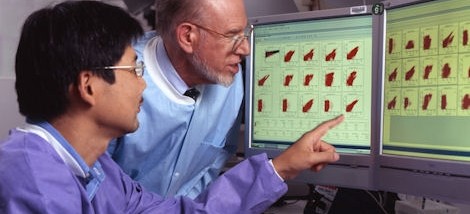Topotecan and Avastin for ovarian cancer – pro
Topotecan is a water-soluble, semisynthetic analogueof camptothecin that inhibits the nuclear enzyme topoisomeraseI. Topotecan has been approved by the U.S. Food and DrugAdministration (FDA) for the treatment of recurrent epithelialovarian cancer and relapsed small cell lung cancer,and has also demonstrated activity in hematologic malignancies and solid tumors including non-small cell lung, cervical, and colon cancers. In ovariancancer, topotecan
Read more
